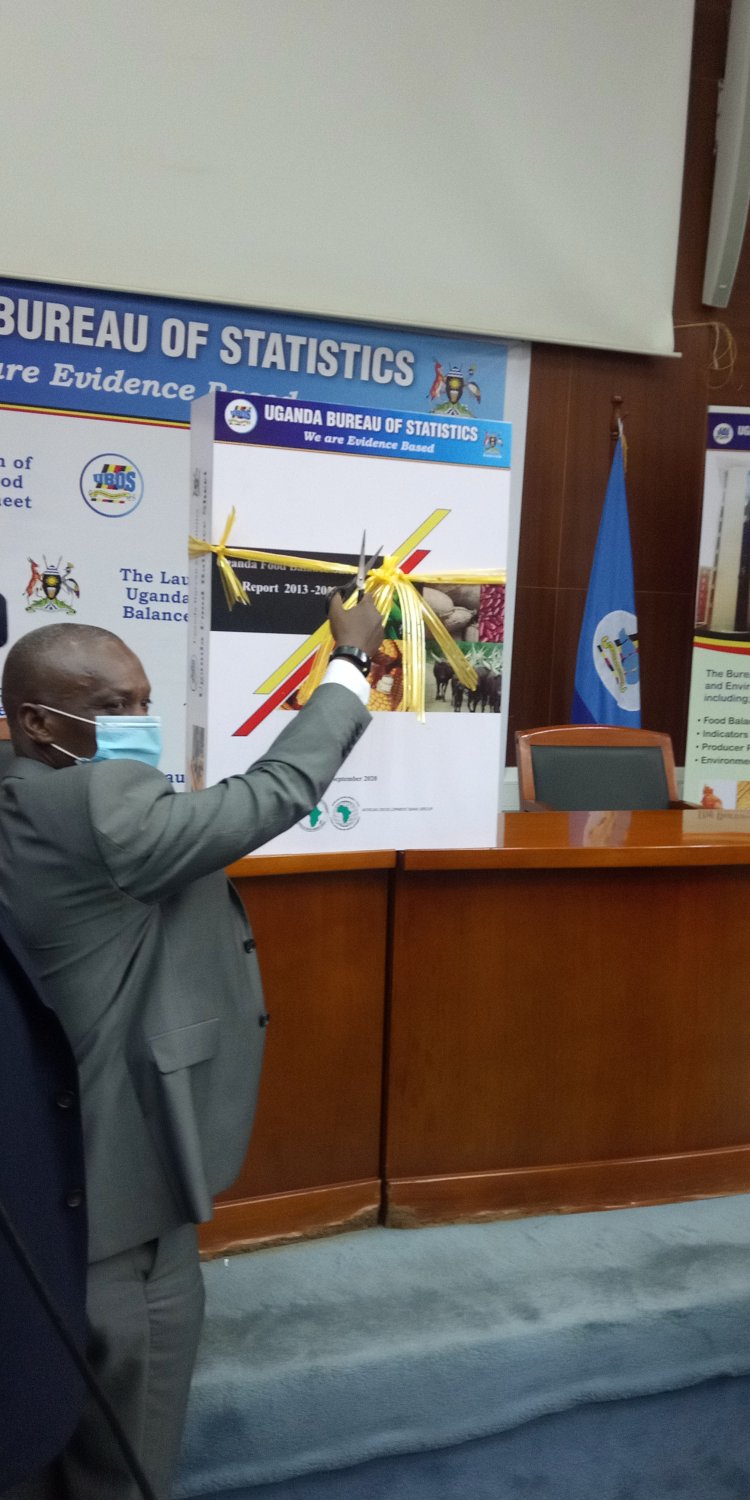Uganda 95% food self-sufficient: UBOS report
Food for consumption supplies indicate that starchy food was the highest contributor per kg per person over the year from 2013 to 2018.

A report by Uganda Bureau of Statistics on the Uganda’s Food Balance Sheet (FBS) compiled for the year from 2013 to 2018 indicated that Uganda’s food self-sufficiency ratio has been rated at 95% making it possible for the country to be sustain itself on the available, and accessible food supplies without the importing food.
FBS is a national accounting/statistical framework showing a comprehensive picture of the measure of food supply and related uses in the country’s population during a specified reference period. It shows the quantities and types of food available for human consumption as well as potential sources of both supply and utilization of a given food product.
During the dissemination of the Uganda Food balance sheet findings at UBOS offices in Kampala, The representative of the Permanent Secretary, Ministry of Agriculture, Animal Husbandry and Fisheries (MAAIF) Segawa Ronald, The Under Secretary of the Ministry called upon all Ugandan to increase participation in food production coupled with involvement in income generating activities to ensure Uganda sustains the rates of the Food Balance Sheet.
He said that report assures all Ugandan that there is enough food security in the country which he said have been provide by a professional body.
“We need to assure Ugandans that there is enough food by statistics from a professional reports from UBOS. We are able to know the quantities and where food is grown. There is need to contribute to the betterment of the process. The food balance shhet should used by all agencies of governemt” he said
The report indicated that the contribution to food supplies from the commodity groups was highest with Stacy foods and Fruit on annual basis with 2014 as the highest and 2018 as the lowest contributor.
According to UBOS, The FBS is also used to estimate the Dietary Energy Supply (DES), measured by the number of kilo-calories per person per day, as well as protein and fats dietary contents. The DES is an essential indicator to analyse the food security situation in a country.












